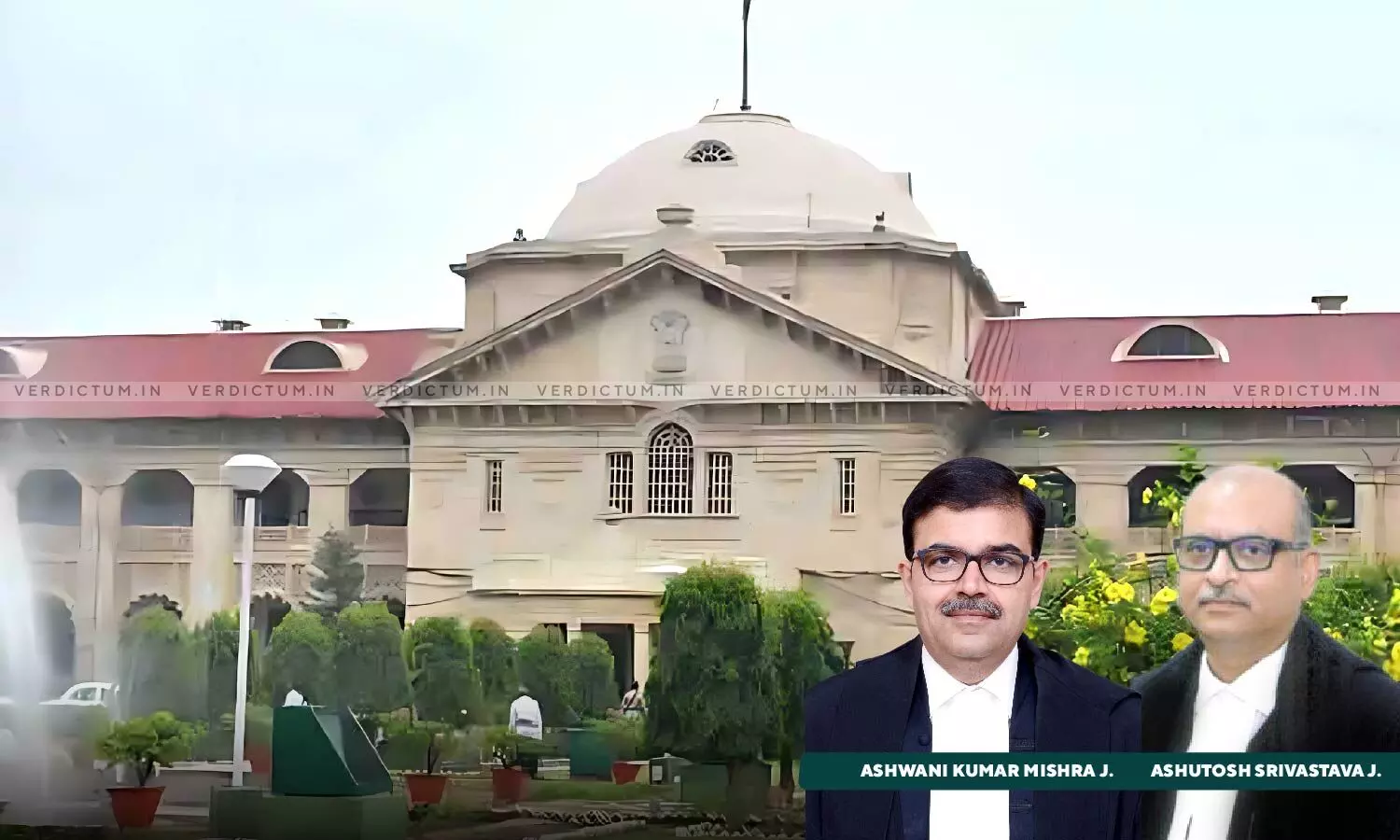
Defaulter Cannot Initiate Criminal Proceedings To Scuttle SARFAESI Proceedings On Issues Exclusively Triable By DRT: Allahabad HC
 |
|The Allahabad High Court held that the criminal proceedings cannot be pressed into action at the instance of defaulter to scuttle proceedings under the Securitization and Reconstruction of Financial Assets and Enforcement of Security Interest Act, 2002 (SARFAESI Act) on issues exclusively triable by the Debt Recovery Tribunal (DRT).
The Court held thus in a batch of criminal miscellaneous writ petitions preferred by a company and a person invoking extraordinary jurisdiction of the court and challenging the FIR lodged in a case registered under Sections 420 and 120-B of the Indian Penal Code (IPC) and Section 82 of the Registration Act, 1908.
A Division Bench comprising Justice Ashwani Kumar Mishra and Justice Ashutosh Srivastava observed, “We have carefully perused the allegations made in the impugned First Information Report which are in respect of transfer of secured asset in favour of auction purchaser by the secured creditor/finance company under the SARFAESI Act. Allegations that proceedings have not been lawfully undertaken or that the secured asset is undervalued are aspects which can only be examined in pending proceedings before the Debt Recovery Tribunal. The defaulter company has already approached the Supreme Court twice and such proceedings were withdrawn with liberty to approach the Debt Recovery Tribunal.”
The Bench said that the tendency of the defaulter to invoke criminal proceedings for resisting coercive action under the SARFAESI Act has to be curbed.
Senior Advocates Gopal S. Chaturvedi, Siddharth Agarwal, and Anoop Trivedi represented the petitioners while AGAs J.K. Upadhya and Pankaj Kumar represented the respondents.
In this case, the petitioner company challenged an FIR and urged that the same was maliciously instituted in respect of a civil dispute and was thus an abuse of the process of law. It was also urged that the informant lodged the FIR on behalf of the borrower company, which undertook loan and defaulted in its repayment on account of which proceedings were initiated in accordance with the provisions of SARFAESI Act.
Borrower company since had failed to seek any protection before the competent forum in respect of coercive proceedings under the SARFAESI Act and lodged the FIR with the intent to pressurize the finance company as well as auction purchaser to withdraw lawful actions initiated against the borrower/defaulter. Prayer was accordingly made to quash the said FIR.
The High Court in view of the above facts noted, “In Priyanka Srivastava vs. State of U.P. (2015) 6 SCC 287 the Supreme Court considered the entertainment of application under Section 156(3) Cr.P.C. in respect of proceedings initiated under the SARFAESI Act. The Hon’ble Court emphasized that a separate procedure existed in respect of SARFAESI Act proceedings under the Recovery of Debts Due to Banks and Financial Institutions Act, 1993 and, therefore, the Magistrate must show an attitude of care, caution and circumspection while entertaining application under Section 156(3) Cr.P.C.”
The Court further said that the defaulter company has already approached the DRT, Lucknow where the matter is pending and that the question as to whether the auction purchaser has exceeded its possession beyond the property transferred in auction purchase is also open for examination before the DRT, Lucknow and that such issues are otherwise civil in nature and cannot be allowed to be raised by lodging an FIR.
“Vague and unsubstantiated ancillary allegations made of encroachment, beyond the transferred secured asset, or alleged irregularity in conduct of auction etc. cannot be allowed to be raised by lodging an FIR and thereby vest jurisdiction in the police regarding civil issues which are required to be adjudicated exclusively by the DRT or the civil court. The tendency of the defaulter to invoke criminal proceedings for resisting coercive action under the SARFAESI Act has to be curbed. The Parliamentary vision of vesting exclusive jurisdiction in specialized tribunal viz DRT, in respect of banking transactions relating to loan, debt etc. has to be respected”, it added.
The Court concluded that the criminal proceedings cannot be pressed into action at the instance of defaulter to scuttle proceedings under the SARFAESI Act on issues exclusively triable by DRT.
Accordingly, the High Court allowed the petitions and quashed the FIR.
Cause Title- Himri Estate Pvt. Ltd. And 4 Others v. State of U.P. And 2 Others (Neutral Citation: 2024:AHC:66640-DB)
Appearance:
Petitioners: Senior Advocates Gopal S. Chaturvedi, Siddharth Agarwal, Anoop Trivedi, Advocates Dhruv Kapur, Debashish Chauhan, Varad Nath, Rajan Kohli, Divya Lamba, Maharshi Kaler, Chiranjivi Sharma, and Raghav Dwivedi.
Respondents: AGAs J.K. Upadhya, Pankaj Kumar, and Advocate Syed Imran Ibrahim.